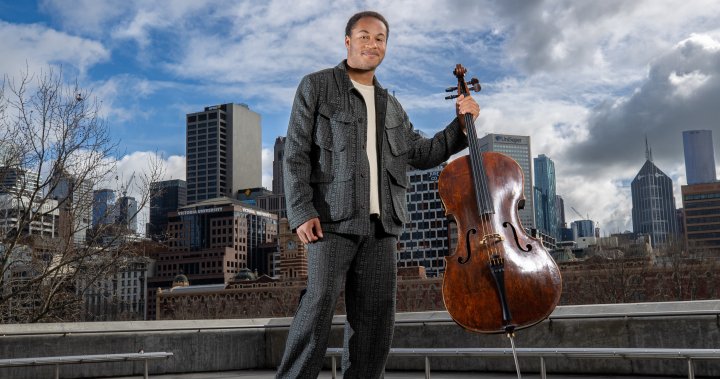The Cello’s Silent Journey: Sheku Kanneh-Mason’s Toronto Concert Cancellation and the Airline’s Dissonance
The world of classical music experienced an unexpected pause when renowned cellist Sheku Kanneh-Mason, celebrated for his captivating performance at the royal wedding of Prince Harry and Meghan Markle, was forced to cancel a highly anticipated concert in Toronto. The cancellation stemmed from a disheartening dispute with Air Canada concerning the transportation of his invaluable cello. This incident, which unfolded amidst a North American tour with his sister and pianist, Isata Kanneh-Mason, brought to light the challenges musicians face when navigating the complexities of air travel with their precious instruments.
Kanneh-Mason, through a poignant Instagram post, shared the unfortunate series of events that led to the concert’s cancellation. The siblings’ journey to Toronto was marred by a cascade of travel disruptions, beginning with flight delays and culminating in a denied boarding due to the cello, despite having a pre-booked seat for the instrument. The ordeal, which stretched over nine agonizing hours at the airport, ultimately made it impossible for them to reach Toronto in time for the scheduled performance. This unforeseen turn of events left the musicians deeply saddened, and their fans were undoubtedly disappointed.
The cello at the center of this controversy holds not only immense musical significance but also historical value. Entrusted to Kanneh-Mason on an indefinite loan, the instrument requires meticulous care and specialized arrangements for its transport. Air Canada’s refusal to honor the pre-booked seat for the cello, despite its stated policy allowing passengers to purchase seats for musical instruments meeting specific size and weight requirements, remains a point of contention. The airline’s policy, while seemingly accommodating, appears to have fallen short in practice, leaving Kanneh-Mason and his sister stranded and unable to fulfill their musical commitment.
This incident underscores the precarious position musicians often find themselves in when traveling with their instruments. While airlines have policies in place for transporting musical instruments, the practical implementation of these policies can be inconsistent and fraught with challenges. The lack of standardized, global guidelines for the carriage of valuable instruments creates an environment of uncertainty and anxiety for musicians, particularly those traveling with historically significant instruments like Kanneh-Mason’s cello.
The Kanneh-Masons expressed their disappointment at the turn of events, recognizing the impact on their eagerly awaiting Toronto audience. However, amidst the frustration and disappointment, they maintained a gracious demeanor, thanking their fans for their understanding and promising to reschedule the performance for the following year. This commitment to their audience underscores their dedication to their craft and their desire to share their musical gifts with the world.
The incident involving Sheku Kanneh-Mason and Air Canada serves as a compelling case study highlighting the need for a more comprehensive and standardized approach to the transportation of musical instruments. The current landscape, characterized by varying airline policies and inconsistent implementation, creates unnecessary hurdles for musicians and jeopardizes the smooth execution of musical events. A global framework, carefully crafted to address the specific needs of musicians and their instruments, would not only alleviate the anxieties associated with air travel but also ensure the preservation of valuable musical heritage. This incident, while unfortunate, could potentially catalyze positive change within the airline industry, leading to more robust and musician-friendly policies that protect both the artists and their invaluable instruments.

